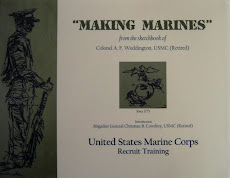SURPRISE! SURPRISE?
by Andy Weddington
Tuesday, 03 September 2013
"Always mystify, mislead and surprise the enemy if possible."
Stonewall Jackson
Thomas Jonathan "Stonewall" Jackson most likely studied history, studied warfare. A Confederate battlefield commander during the Civil War, he is believed to be one of the most innovative and boldest tacticians in U. S. military history.
To surprise is to act without forewarning; to catch off-guard. Thus, a surprise is unexpected.
General Jackson exploited surprise.
The U. S. Navy SEALs who killed America's once No. 1 enemy surprised the occupants of Osama Bin Laden's compound. So was Pakistan surprised. As were many others - friend and foe.
That operation stands as proof, despite today's remarkable technology (for warning and situational awareness), it's still possible to surprise.
Surprise is a principle of competitiveness and of survival. Athletics - trick plays; business - new products; nature - food chain; and armed conflict - strategy and tactics to defeat a superior force; first come to mind. "Secret weapons" is common vernacular and a good summary.
Surprise is a Principle of War.
Sun Tzu in 'The Art of War' talks about surprise in the context of 'shape' as relative to exploiting the enemy. Interestingly, 'shape' makes good sense to me - as shape (and color) is the core of art, of painting and the meaning, broadly, is parallel (to warfare).
That is, Sun Tzu advocates getting into the head(s) of the enemy by taking action (making shapes - creating illusions) that leads to logical but false assumptions. The idea being to confuse the enemy to the point of hesitancy and cause poor decision-making.
In short, brains being the battlefield victor while brawn merely a tool of war and to be neutralized.
Today the public arena is buzzing with coverage about Syria - civil war rages; there are no good guys; and there's proof President Assad used chemical weapons against his citizenry. On the world stage, it's a serious matter. But it's also sickly entertaining as U. S. leaders (e.g., Barack Obama; John Kerry; et al.) who once cozied up (for political convenience) to President Assad now oppose him (for political convenience).
As to brains and President Assad and President Obama...
Are Mr. Obama's drawing 'red lines'; saying President Assad's use of chemical weapons would be a "game-changer"; and ambiguous threats of taking action pieces of Sun Tzu's 'shape'?
Are leaks of military action to media 'shape'?
Is Mr. Obama's ordering of warships to the region another 'shape'?
Is Mr. Obama's decision to delay action pending congressional debate yet another 'shape'?
Is Mr. Obama's apparent state of utter confusion, indecisiveness, and sufficiently vague public comments more 'shape' still?
Are public statements, mostly confusing and inconsistent, by congressional leaders - House and Senate - and analysts and talking heads still more 'shape'?
Is it 'shape' that our collective confusion, which seems the norm anymore, is deceptively working to embolden President Assad and other enemies, too, to a point of vulnerability?
Was British parliament's decision to not authorize attack on Syria also an element of 'shape'?
These questions (and more come to mind) I ask remembering a friendly warning from long ago - if an old country gent in a hick accent nonchalantly tells you he doesn't know much about politics and money your best move is to zip your pockets and run.
As goes media coverage, at first blush it's difficult to believe Syria could possibly be surprised by an attack - whether by the United States alone or a coalition (including the Brits).
Could the obvious lack of surprise, and petering out of momentum, be the intended surprise?
And all that said while wondering what in Syria is of vital national safety and security to the United States?
So, Mr. Obama, tell us with a straight face please, despite the horror (which goes on about the world), what is so important to risk American brains and brawn on Syria? - for right now Americans (we are not the enemy and not to be mislead) are mystified and largely against military action.
Or, is our confusion and dismay part of the 'shape'?
Have you studied Stonewall Jackson?
In closing, a bit of advice for Mr. Obama about shape and color...
As shape and color are the essence of life, of conflict - whether athletics; business; nature; or warfare - a 'red line' is too obvious. The 'red line' carries all sorts of preconceptions and not necessarily the same ones by all, and that's dangerous.
Think, Mr. President. Call for something blue or yellow or blue green or yellow orange and in any shape but a line. Throw some brains into the mix. Add wonder and confusion to the 'shape' - keep those, without need to know, guessing.
Finally, is our leadership bright enough to deliberately shape such a complex ruse of 'shape' (and color)?
And, that all this stems from a Nobel Peace Prize awardee is that more 'shape' still?
Maybe.
Surprise! Surprise?
Post Script
Has Mr. Obama's Middle East policy, and past actions, made for a by-design or unintentional mess? Some believe it's a surprise. Others are not surprised. But however realized - a mess is a mess.















1 comment:
Col - very good. I don't thing Obama is that smart nor intelligent about such matters. The one, and only, excuse for such open lack of surprise is that we don't know where he is actually keeping these weapons and our telegrahing our impending attack may be a ploy to get him to move these weapons and in doing so expose the true location of them. Maybe...
Robert H Barrow
Marine
Post a Comment